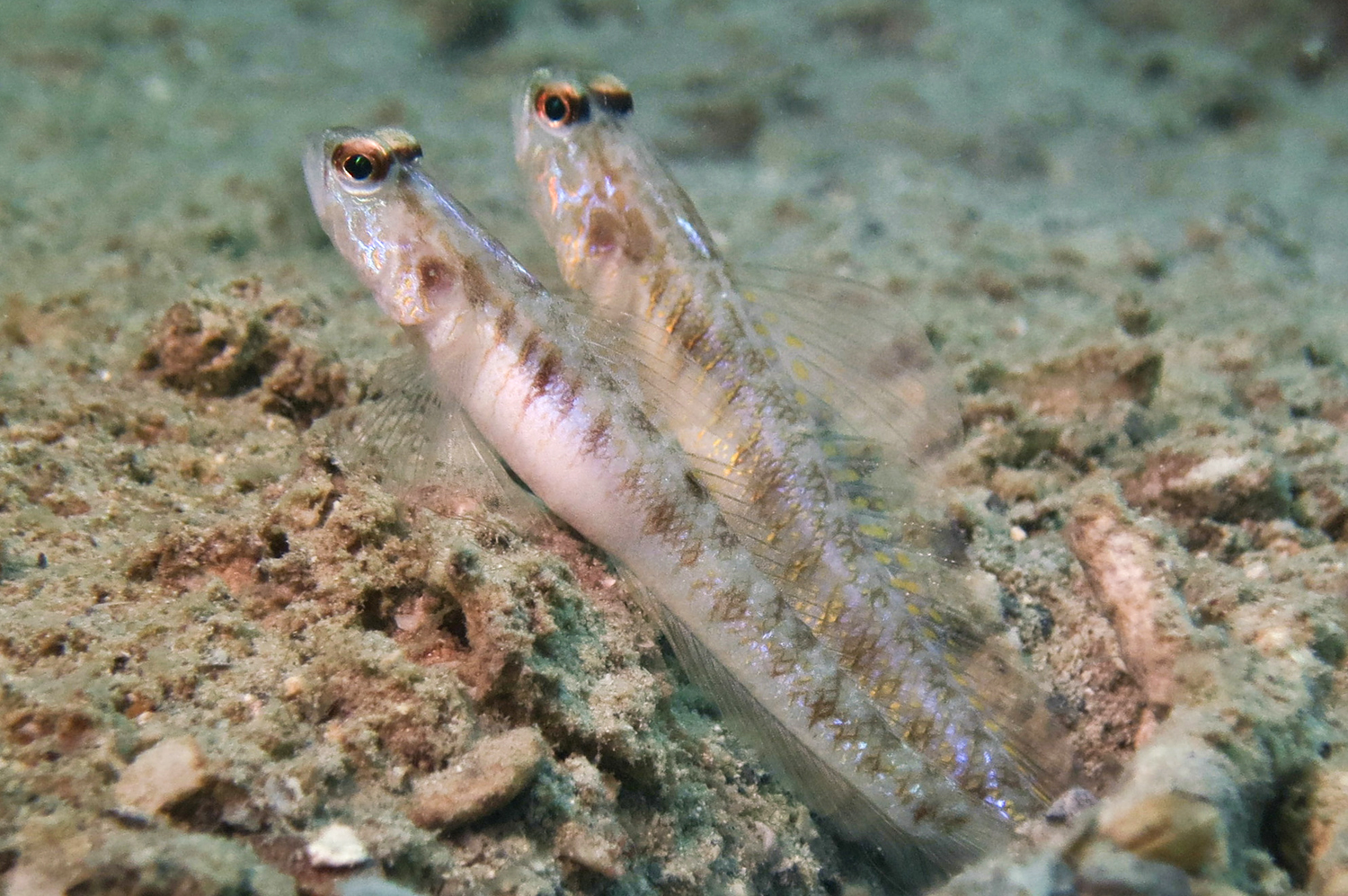- Classification
- ACTINOPTERYGII
- PERCIFORMES
- GOBIIDAE
- Vanderhorstia
- auronotata
Gold-marked Shrimpgoby, Vanderhorstia auronotata Randall 2007

A pair of Goldmarked Shrimpgobies, Vanderhorstia auronotata, in the Low Isles near Port Douglas, Queensland, depth 8m on silty sand in sheltered waters. Source: Sue Churchill & Rogan Draper. License: All rights reserved
Summary:
Known in Australia from the Low Isles, Queensland.
Cite this page as:
Bray, D.J. 2022, Vanderhorstia auronotata in Fishes of Australia, accessed 27 Jun 2025, https://fishesofaustralia.net.au/Home/species/5278
Gold-marked Shrimpgoby, Vanderhorstia auronotata Randall 2007
More Info
|
Distribution |
Lowe Isles, Queensland. Elsewhere the species occurs in the tropical West Pacific. Inhabits silty-sandy areas. |
|
Features |
Dorsal fin VI + I, 14; Anal fin I, 15; Pectoral rays 17-18; Scales in longitudinal series ~ 55. Body elongate, depth 5.55 in SL; orbit diameter 4.05 in HL; third dorsal-fin spine longest, 3.95 in SL; caudal fin long and very pointed, 2.5 in SL; pectoral fins reaching to above anal-fin origin, 3.6 in SL; pelvic fins just reaching anus, 4.9 in SL; scales absent from head, nape and prepectoral area. |
|
Biology |
Lives in a symbiotic relationship with alpheid shrimps. |
|
Etymology |
The specific name auronotata is from the Latin aurum (= gold) and nota (= mark), in reference to the many bright orange-yellow marking of this species. |
|
Species Citation |
Vanderhorstia auronotata Randall 2007, aqua, International Journal of Ichthyology 12(3): 94, fig. 3. Type locality: about 1.5 km west of Poka, Ambon Bay, Ambon, Indonesia. |
|
Author |
Bray, D.J. 2022 |
|
Resources |
Gold-marked Shrimpgoby, Vanderhorstia auronotata Randall 2007
References
Allen, G.R. & Erdmann, M.V. 2012. Reef fishes of the East Indies. Perth : Tropical Reef Research 3 vols, 1260 pp.
Randall, J.E. 2007. Descriptions of four new shrimpgobies of the genus Vanderhorstia from the Western Pacific. aqua, International Journal of Ichthyology 12(3): 89-100.





